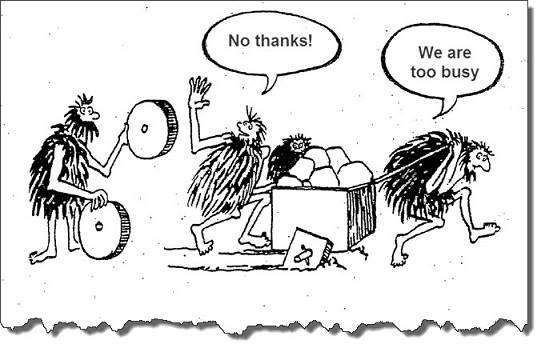The sales team knew the sales process helped improve the results they produced–they had tested it, they’d seen profound improvements in result, but they weren’t using it. They struggled to produce results.
The manager knew he was supposed to coach his people. He knew that coaching was the most effective way to improve performance and drive results. But instead, he jumped in to “save deals,” and dictated next steps to the sales people. His team’s performance wasn’t consistent, consequently always in crisis.
The manager knew that he was undisciplined in managing his time. He knew he needed to prioritize and focus, he knew that he needed to stop being interrupt driven and multitasking, but he couldn’t stop.
The marketing team knew they were supposed to focus on their “ICP,” providing targeted, personalized messages that engaged these people, yet they cast a wide net, far beyond the ICP with generic, meaningless messages. They wondered why response rates were so low.
Sales people know we are supposed to be customer focused, that we are supposed to engage our customers in conversations about them and their businesses, yet we are driven to pitch, focusing on our priorities.
Example after example, there is no lack of examples any of us could provide of knowing what we should be doing, yet we fail to do it. We remain committed to doing those things that aren’t producing results, while all the time knowing what does–but failing to execute them.
Curious, I ask people:
“It’s quarter end, we’re busy winding up deals. We’ll get to it when things calm down…..”
“I just don’t have the time right now…..”
“I’m so busy, things are changing so quickly…..”
“I forgot…..”
It seems so ironic, we have the time to continue doing what we know doesn’t work or that which is most effective. We have the time to do things over, if we have made mistakes
We just can’t find the time to do things we know to be right.
Changing our own personal habits is tough. There is never a convenient time. In fact, too often, the urgency to change comes at the most inconvenient times.
Change is tough because it’s, well—-change.
But if we don’t change, we don’t improve, we don’t get better, whether individually or organizationally. It really comes down to the conviction, commitment and courage to start doing what we know works, and stop doing what we know doesn’t.
There is no technology, no book, no magic solution other than, “Just doing it.”

You may interested in what philosophers call dynamic choice problems.
“Sometimes a series of choices [over time] do not serve one’s concerns well even though each choice in the series seems perfectly well suited to serving one’s concerns.”
https://plato.stanford.edu/entries/dynamic-choice/
Thanks Mike!